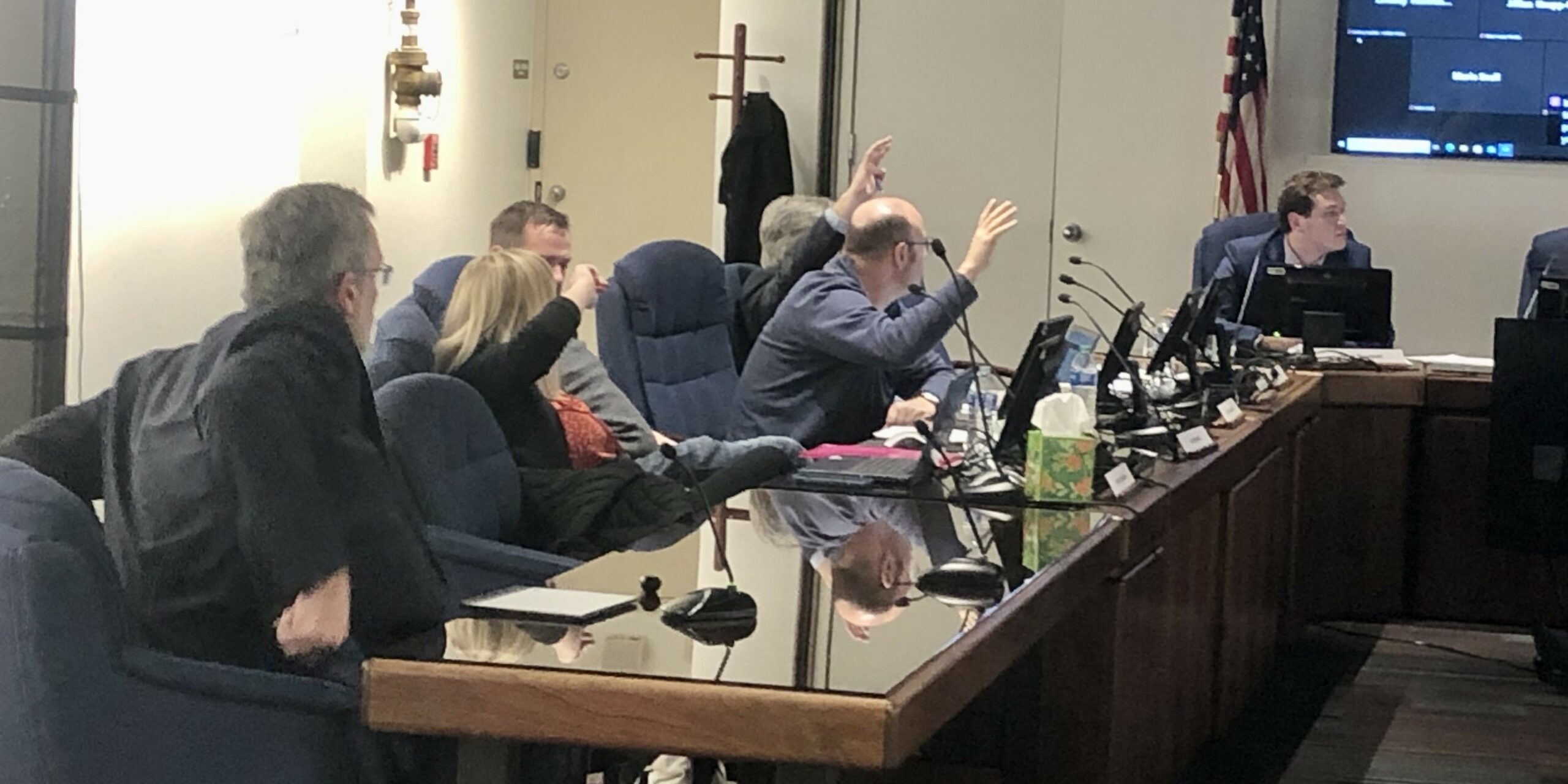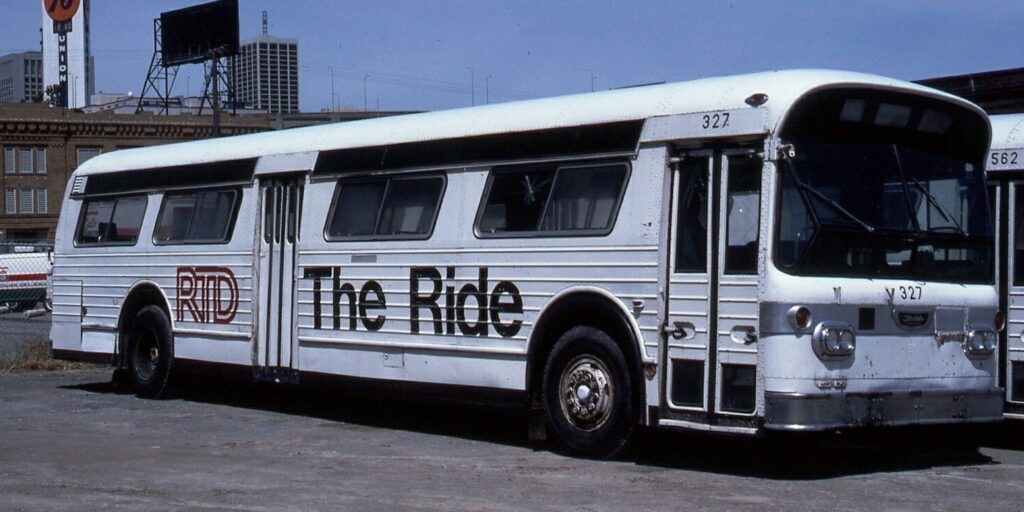
RTD Reform
GDT > 2025 Colorado State Legislature > RTD Reform Bill
Support RTD reform!
Public Opinions of RTD
“RTD has a long list of broken promises to Coloradans and does not provide the transit services our growing metro area needs.”
Shelby Wieman, spokesperson for Gov. Jared Polis, April 2024
- Agency pulls off a “herculean task” every day in delivering service.
- RTD has a reputation for poor service reliability and being unsafe to ride.
- Customer feedback via surveys and social media is mostly negative.
- Failure to finish 2004 FasTracks projects is used against the RTD as a reason not to provide more funding.
- Agency is now repeatedly targeted by the Colorado State Legislature for reform.
- The RTD Board is seen as being ineffectual in times where decisive leadership and governance is required.
RTD Reform Proposal

GDT recommends amendments to the RTD Act (C.R.S. § 32-9-101 et seq.) for RTD reform. All language provided is open to revisions and negotiations.
Last update: Aug 27th, 2024. Current statutory language is non-italicized. Amendments are italicized.
- Update C.R.S. § 32-9-109.5 subsection (4) to specify that the Board is fully responsible for setting the performance criteria for any District officer or employee with delegated authority.
Note: The intended effect of this change is to hold the board fully responsible for setting the performance criteria of the GM/CEO while still leaving flexibility for the GM/CEO role to be split into multiple positions in the future or for a title change. It is not intended to make the board fully and solely responsible for the performance criteria setting for every RTD employee.- “All powers, duties, functions, rights, and privileges vested in the district shall be exercised and performed by the board; except that the exercise of any executive, administrative, or ministerial powers may be delegated by the board to officers and employees of the district. The board shall be fully responsible for setting the performance criteria for any district officer or employee with delegated authority;”
- Update C.R.S. § 32-9-114 subsection (1)(f) to specify the Board should be able to comprehensively review contracts.
- “To provide a method for the comprehensive review and letting of contracts on a fair and competitive basis for the construction of works, any facility, or any project, or any interest therein, or for the performance or furnishing of labor, materials, or supplies as required in this article;”
- Update C.R.S. § 32-9-114 subsection (1) to specify the governance, strategy via policy, oversight and accountability / representation role of the Board.
- “To provide governance of the district, determine district strategy via policy, exercise oversight of district affairs and provide accountability and representation to the public;”
- Update C.R.S. § 32-9-114 subsection (1) to specify the Board Office should have sole responsibility for setting its annual budget, funded by RTD. The budget should be approved by the Independent Audit Committee.
- “To set an annual budget for the board office and associated support functions, approved by an independent audit committee;”
- Update C.R.S. § 32-9-114 subsection (1) to specify that Board Office employees should work at the sole direction of the Board, to administer the operations of the Board Office.
- “To hire, supervise and manage dedicated employees who work at the sole direction of the board, to administer the operations of the board office;”
- Repeal C.R.S. § 32-9-114 subsection (1)(g) that requires the Board to designate an official newspaper.
Note: Currently there is only one statute in the RTD Act (C.R.S. § 32-9-106.8) which requires publication as defined in C.R.S. § 32-9-103 which would necessitate designation of an official newspaper, and that statute already grants the board the power to designate a newspaper for publication. This annexation procedure statute should be examined and modernized. - Update C.R.S. § 32-9-117 subsection (2) to increase Director pay to 20% of a County Court Judge per annum.
- “This subsection (2) Is repealed, effective January 1, 2026;”
- “(2.5)(a) Except as otherwise provided In subsection (2.5)(b) of this section, effective January 1, 2026, each director on the board created pursuant to section 32-9-109.5 receives an annual salary that Is equal to twenty percent of the salary paid to county judges pursuant to article 30 of title 13;”
- Add new statute C.R.S. § 32-9-165 to require the agency to publish key performance data, service standards and accurate schedules.
- “The district shall publish detailed safety, ridership, reliability, rider satisfaction, budget, capital project(s), and headcount data;”
- “The district shall publish and periodically update minimum service standards based upon local area characteristics, including population density and key destinations;”
- “The district shall publish draft schedules at least 90 days in advance of proposed service changes.”
- “Except during emergency situations, the district shall communicate accurate and exact schedule information to riders at all times. Regular schedule changes shall be published at least 30 days in advance. Planned temporary service changes, affecting a period of no longer than 15 days, shall be published at least 15 days in advance;”
- Add new statute C.R.S. § 32-9-166 to require the agency to publish a ‘Rider’s Bill of Rights’.
- “The district, in partnership with external stakeholders, shall publish and maintain a ‘rider’s bill of rights’, detailing the minimum standards of service and care that customers can expect;”
- Add new subsection to C.R.S. § 32-9-115 to require the state auditor to conduct a performance audit of all aspects of the RTD service change process including ridership data collection, collective bargaining agreement (CBA) requirements, other known factors influencing schedule creation, analytical processes, timed transfer policies, runboard allocation, public engagement and represented employee consultation.
- “(4)(a) As used in this subsection (4), unless the context otherwise requires:;”
- “(I) “committee” means the transportation legislation review committee as defined in article 2 of title 42;”
- “(b) No later than August 1, 2025, the office of the state auditor, shall commence conducting or cause to be conducted a performance audit of the district’s policies and practices concerning district transit services. On or before August 1, 2026 the state auditor shall prepare a report and make recommendations based on the audit that must:
- (I) Determine whether the district’s transit service scheduling practices and public engagement processes are in line with best practices to increase transit service and ensure adequate district service area coverage and on time performance.
- (II) Determine whether the district’s transit service route planning and relevant technical analyses are in line with best practices, including an assessment of the district’s timed transfer policies and practices.
- (III) Examine the district’s ridership data collection practices to evaluate what analytical barriers, if any, exist which affect the district’s ability to adequately provide service commensurate with demand and need by route.
- (IV) Review the district’s consultation process with represented and non-represented employees who operate district transit vehicles and provide services, including runboard allocations and schedule creation. By January 2026, The district, in partnership with external stakeholders, shall publish and maintain a ‘rider’s bill of rights’, detailing the minimum standards of service and care that customers can expect;”
- “(c) No later than August 1, 2026, the state auditor shall present the report and recommendations described in subsection (4) to the transportation legislation review committee as defined in article 2 of title 42;”
- “(d) This subsection (4) is repealed, effective September 1, 2027.”
What about reforming composition of the Board?

RTD is governed by a 15-member, publicly elected Board of Directors. Directors are elected to a four-year term and represent a specific district of about 200,000 constituents. While this system in undoubtedly democratic, critics point out that it is possible to elect a Board with little or no transit industry specific experience and that Directors appointed by city councils, DRCOG and the Governor would do a better job.
It should be remembered that the current board structure was put in place with voter approval. Therefore it is GDT’s view that any changes to the Board’s composition must be put to a public vote.
GDT recommends amendments to the RTD Act (C.R.S. § 32-9-101 et seq.) and the RTD Bylaws to improve the effectiveness of the Board. We currently do not believe much effort should be expended on reviewing the composition of the Board at this time.
What should the RTD Board be doing?

Make no mistake, RTD Board reforms are sorely needed. The Board needs to move beyond being seen as simply a “rubber stamping” device for staff’s initiatives and fully take on the roles and responsibilities it was put in place for, which primarily are to:
- Provide governance.
- Determine agency strategy via policy.
- Exercise oversight.
- Provide accountability and representation.
The Board should not usually engage in day-to-day management decisions regarding the operation of the agency.


